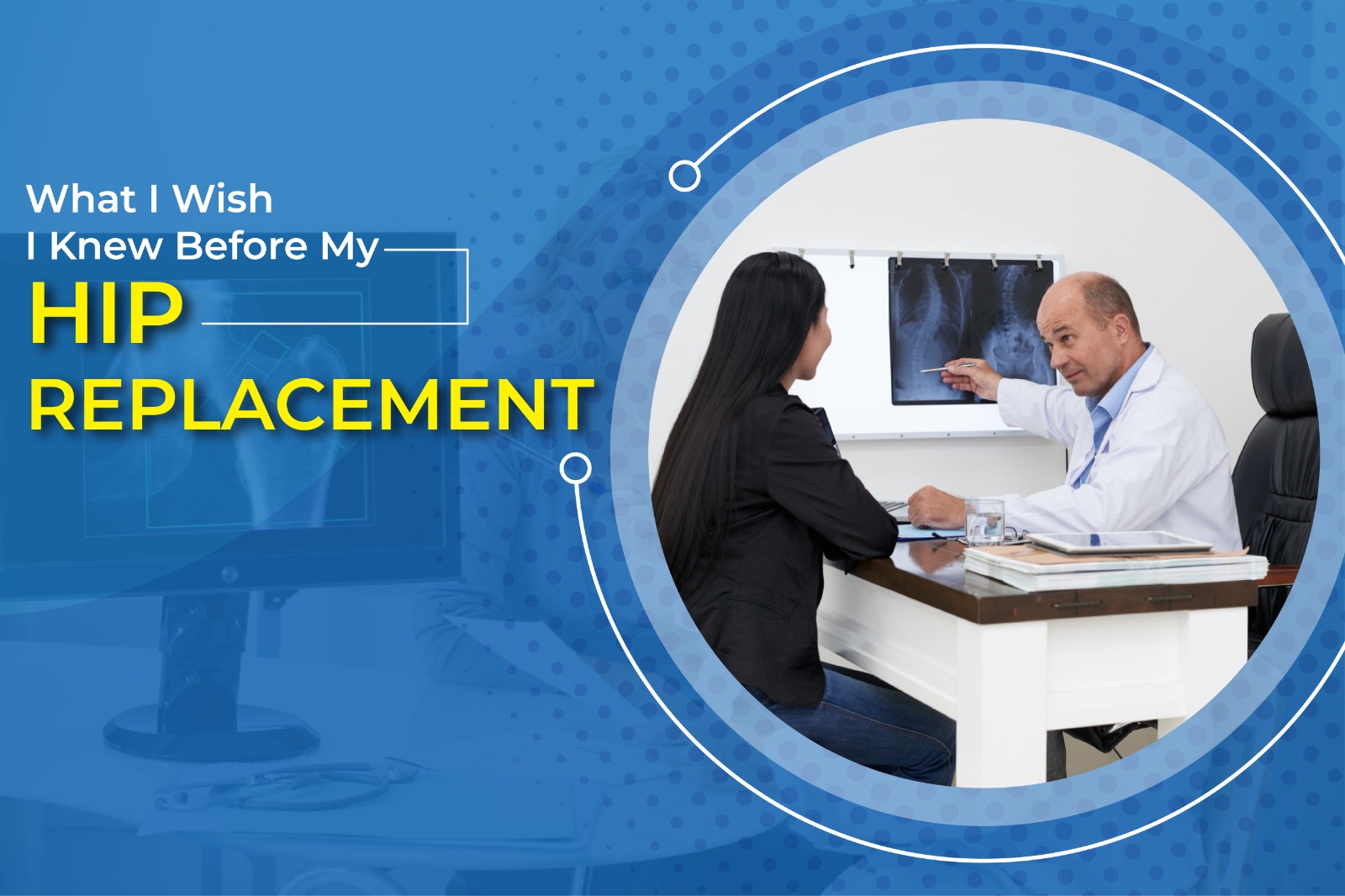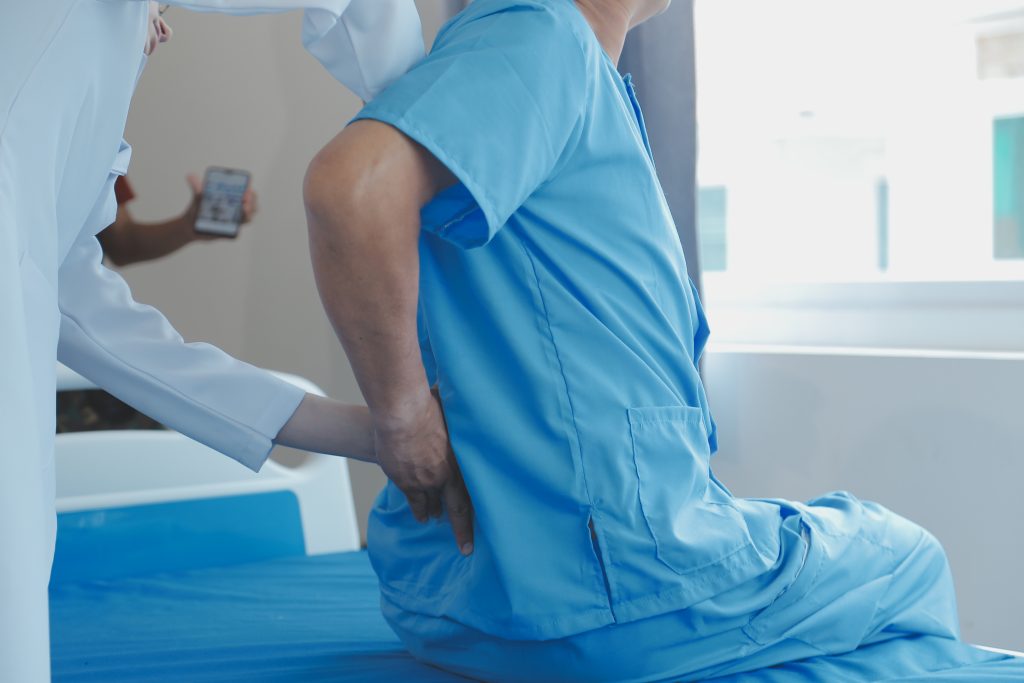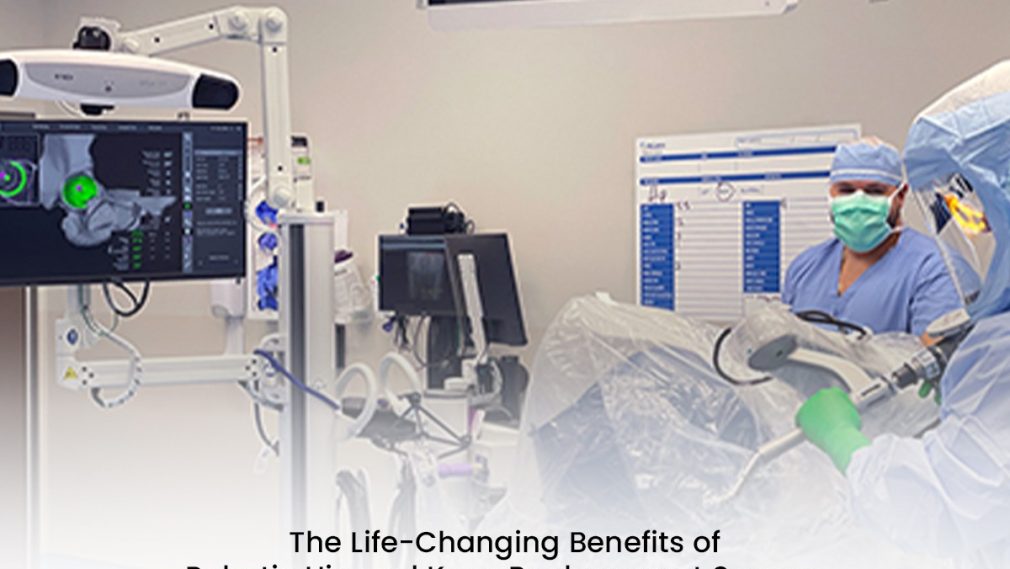What I Wish I Knew Before My Hip Replacement

Did you know over 1.2 lakh hip replacements are done in India every year? If you’re considering one, here’s something crucial: Are you truly ready for what comes after hip replacement surgery? Are you also thinking of things like “I wish I knew before a hip replacement surgery so that I could be sure of what comes next?” or “I wish someone had told me how important muscle strength and mental preparation are.”
So, today as a hospital having the best hip replacement surgeon in Ahmedabad, we are here to detail all about implant life, mobility post-surgery and realistic healing timeframes.
Hip Pain Problems which lead patients to consider hip replacement surgery
Hip problems often begin subtly but may worsen over time. One early sign is swelling in the hip or even the knee. This happens because the hip joint, when inflamed or damaged, can cause fluid to build up and pressure nearby tissues. For example, a person with arthritis may feel tightness or warmth around the hip and notice their knee swelling too.

Another symptom is a sudden change in walking style, often called a limp. This usually occurs when the joint cartilage has degraded, thereby causing pain or instability. For instance, someone may start favouring one leg or dragging a foot while walking.
Lastly, many patients who come to a hip replacement surgeon feel difficulty standing on one leg, especially while dressing or climbing stairs. This weakness or imbalance signals joint damage or muscle strain around the hip. According to recent clinical data, such symptoms often lead patients to consider hip replacement surgery.
What Are the Signs That You Need Hip Replacement Surgery?
As an experienced hip replacement hospital in ahmedabad, we always face people who come with hip pain. This pain can quietly creep into daily life. But when it starts disturbing your walking, sleeping and sitting, it could be a sign that your hip joint is wearing out. As per the Indian Journal of Orthopaedics (2024), over 30% of patients needing hip replacement had ignored these early red flags.
1. Hip Joint Pain When Walking
If every step feels like a pinch or a jab in your groin or thigh, your hip joint may be damaged. The smooth cartilage might be worn down, causing bone to rub on bone.
2. Hip Pain at Night
Pain that wakes you up or makes turning in bed uncomfortable is a big sign. A 2023 AIIMS study showed that 7 in 10 hip replacement patients complained of disturbed sleep due to deep joint pain.
3. Hip Stiffness After Sitting
If getting up after sitting—even for 20 minutes—feels like your hip is stuck or rusty, it’s more than age. It indicates joint inflammation or arthritis.
4. Hip Pain While Driving
A good Hip replacement surgeon will always ask you whether you have pain during long drives or discomfort while pressing the clutch. This can signal joint damage, especially in the left hip for Indian drivers.
What You Must Do Before Hip Replacement Surgery
As the most trusted hip replacement hospital in Ahmedabad, we would like to share the following cautions:
1. Lose Excess Weight
Carrying extra weight puts stress on your hip joint, slowing healing. A 2023 study in the Journal of Arthroplasty found that patients with a BMI over 30 had nearly 3 times higher risk of complications after surgery like infections and joint instability. Losing just 5–10% of your body weight improves surgery outcomes significantly. Walking and diet changes — guided by a doctor — are a good start.
2. Quit Smoking
Smoking hinders the free-flow of oxygen to tissues and delays wound healing. According to the World Health Organisation (WHO), smokers face 2 to 2.5 times higher surgical surgery with help from nicotine patches. complication rates, including infections. Please aim to quit smoking 6–8 weeks before the hip replacement surgery.
3. Avoid Blood Thinners
Medicines like aspirin, warfarin or herbal supplements can cause excessive bleeding. As per American Academy of Orthopaedic Surgeons (AAOS), these should be stopped 5–7 days before surgery. This medication should come only under the guidance of a hip replacement hospital in Ahmedabad or your city.
4. First-Floor Sleeping Arrangement
Stairs are tough just after hip replacement surgery. Experts advise arranging your bed, bathroom and daily items on one floor. This avoids falls and makes early recovery smoother, especially for older patients.
5. Adjust Your Bed Height
Low beds can cause harmful hip bending. The ideal bed height is 22–24 inches from the floor. Use a firm mattress or add risers. This ensures you sit and get up without straining the new joint.
6. Use Cold Therapy
Cold packs reduce swelling, especially in the first 7–10 days. Hip replacement surgeon s recommend 15–20 minutes, 3–4 times a day. Keep gel packs or frozen peas ready before your surgery.
7. Install Grab Bars & Railings
Slips and falls are the biggest danger after hip surgery. The Indian Orthopaedic Association (IOA) and CDC both recommend installing grab bars in bathrooms and stair railings to reduce fall risks by up to 60%. Ensure bars are stable and placed near toilets, showers and bedside.
FAQs:
1. When should I consider hip replacement?
You should consider hip replacement if daily pain in your hip makes it hard to walk, sleep or do simple tasks, even after using medicines or doing physiotherapy. Younger patients may benefit from issues resurfacing as it preserves more bone.
2. What are the types of hip replacement surgeries?
There are three main types: total hip replacement (the full joint is replaced), partial hip replacement (only the damaged part is replaced) and hip resurfacing (the surface of the joint is smoothed or capped).
3. What tests are done before surgery?
A good hip replacement hospital in Ahmedabad your city will run conduct blood tests, ECG (to check your heart), chest X-ray and sometimes an MRI or CT scan to examine the joint. If you have high blood pressure or diabetes, these will be checked and managed before surgery to avoid any future risks.
4. How should I prepare my home for recovery?
Remove loose rugs to prevent slipping. You also have to install grab bars in the bathroom, keep essentials within easy reach and use a firm chair with arms for daily use. Under a shower, prefer to use a shower chair.
5. Will I need to stop any medications before surgery?
Yes, some medicines like blood thinners, anti-inflammatories or certain diabetes tablets will need to be paused (by your hip replacement surgeon) a few days before surgery to prevent bleeding.
6. What should I bring to the hospital?
Bring your previous medical records, hospital file, ID, insurance papers, a list of medications, comfortable clothes, toiletries and non-slip slippers.
Struggling with constant hip pain? Do not ignore, come to Parekhs Hospital – the most trusted hip replacement hospital in Ahmedabad. Book your consultation today and walk pain-free soon!






